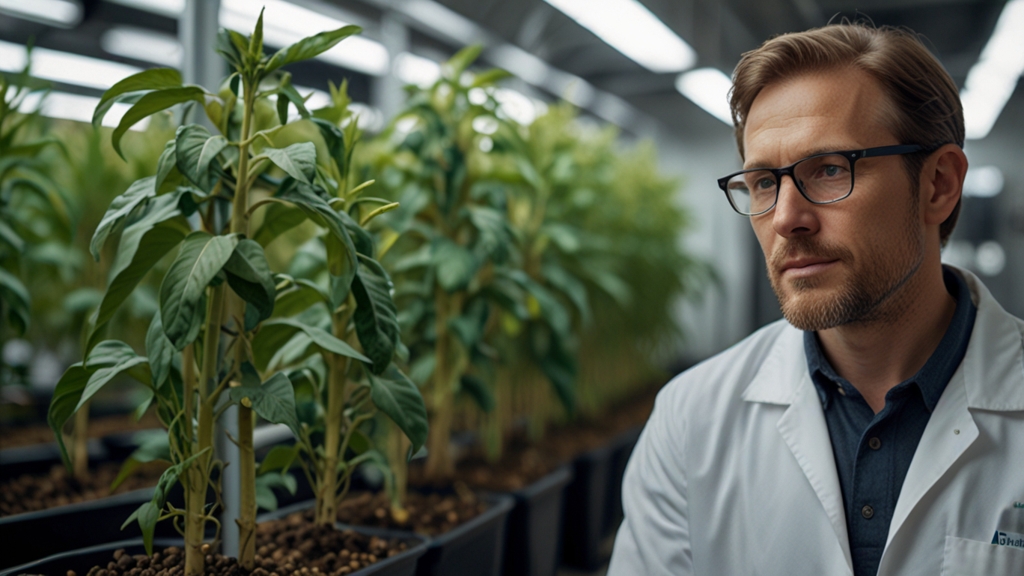Revolutionizing Agriculture: Biotech Crops and Their Future
Agriculture has been the backbone of human civilization for millennia. As the global population continues to rise, the demand for efficient and sustainable farming practices has never been greater. One of the most promising advancements in modern agriculture is the development and implementation of biotech crops. Also known as genetically modified organisms (GMOs), these crops have the potential to revolutionize the way we grow food, tackling challenges such as pest resistance, drought tolerance, and nutritional enhancement.
The Rise of Biotech Crops
Biotech crops were first introduced in the mid-1990s with the promise of improving agricultural productivity and sustainability. By incorporating genes from other organisms, scientists were able to create plants that exhibited desirable traits; for example, resistance to pests or enhanced nutritional content. This marked a significant departure from traditional breeding methods, offering a more targeted approach to crop improvement.
"Genetically modified crops have been instrumental in increasing agricultural yields while reducing the environmental footprint of farming." — Dr. Jane Smith, Agricultural Scientist
Today, biotech crops are grown on millions of hectares worldwide. Major crops such as corn, soybeans, and cotton have seen significant improvements, enabling farmers to produce more food using fewer resources. This is particularly important in regions susceptible to challenging growing conditions, where traditional crops may struggle to thrive.
Advantages of Biotech Crops
The advantages of biotech crops extend beyond just increased yield. Here are some of the key benefits:
Pest and Disease Resistance: Crops engineered with genes for pest and disease resistance reduce the need for chemical pesticides, lowering costs and minimizing environmental impact.
Drought Tolerance: With climate change resulting in more erratic weather patterns, drought-tolerant crops are essential for maintaining food security in arid regions.
Nutritional Enhancement: Biotechnology can be used to enrich crops with essential nutrients, addressing deficiencies and improving global health. A notable example is the development of Golden Rice, engineered to produce Vitamin A.
Challenges and Concerns
Despite their potential, biotech crops are not without controversy. One of the main concerns is the long-term impact on human health and the environment. Critics argue that not enough is known about the effects of GMO consumption, leading to calls for more rigorous testing and regulation. Additionally, there are concerns about the impact on biodiversity, as the widespread adoption of biotech crops could reduce the genetic diversity of plant species.
"It is crucial that we balance the benefits of biotech crops with thorough, evidence-based assessments of their risks to both human health and ecosystems." — Dr. Michael Johnson, Environmental Biologist
Another significant challenge is public perception. Misinformation and lack of understanding have resulted in widespread skepticism and resistance to GMOs. Educating the public and transparent labeling practices are essential to build trust and acceptance.
The Future of Biotech Crops
The future of agriculture will likely see an increased integration of biotech crops, driven by ongoing research and technological advancements. Precision agriculture, combining biotechnology with data science and machine learning, has the potential to optimize farming practices further.
Looking ahead, the development of new genome-editing technologies like CRISPR/Cas9 offers exciting possibilities. These tools enable more precise genetic modifications, opening the door to creating crops with traits tailored to specific environmental conditions and consumer needs.
Conclusion
Biotech crops have already made significant strides in addressing some of the most pressing challenges in agriculture. As technology continues to advance, so too will the potential for these crops to contribute to a more sustainable and resilient food system. By leveraging the benefits of biotech crops, we can work towards a future where hunger and malnutrition are relics of the past, and agriculture coexists harmoniously with our planet.








